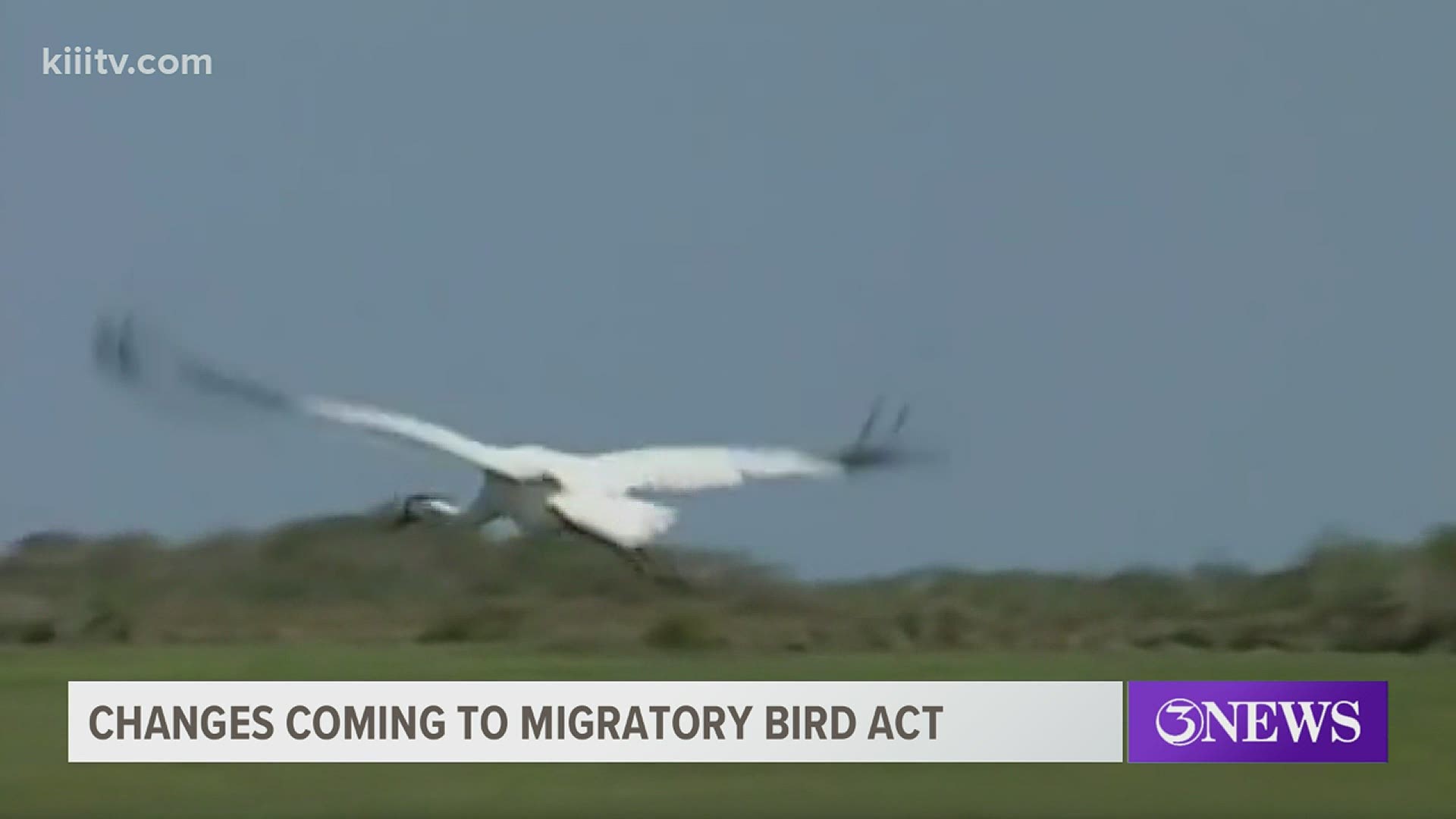CORPUS CHRISTI, Texas — Corpus Christi known as the Birdiest City in North America as millions of migratory birds move through this area every year
Local bird experts are worried about some proposed changes to the 1918 Migratory Bird Act that the U.S. Fish and Wildlife Service is proposing.
There are about 500 whooping cranes who call our area home during the winter. That number represents a small portion of the millions of migratory birds which travel through the Coastal Bend each year.
That mass migration has helped Corpus Christi earn the title of the Birdiest City in the Country.
”There is a recent study that show that we have lost about three billion birds from the North American population over the last 50 years; that’s basically one in four birds, 'poof' gone," Director of the Coastal Bird Program David Newstead said.
The Coastal Bend Bays and Estuaries Program's mission is to improve the health of our bay system. Newstead points out that the Migratory Bird Act was also designed to protect wildlife.
Right now, the U.S. Fish and Wildlife Service is looking at changing some of the rules of that act which some feel will make it easier for those who are responsible for incidental bird deaths to avoid prosecution.
"There’s a lot of prosecutorial discretion," Newstead said. "It’s not automatic that somebody who incidentally or accidentally takes a bird and then his prosecuted to the full U.S. extent of the law. It just leaves open that possibility for egregious examples of that sort of thing and to take away that possibility entirely is a very, very dangerous situation."
The folks at the ARK Rehab Center in Port Aransas are always working to rescue and rehabilitate marine birds. Many of those animals are part of the mass migration through our area.
Alicia Walker is the program director and says the biggest dangers that she sees to the birds they handle are not tied directly to industries but from those who litter.
”The big impacts that we see are fishing line entanglement, plastic ingestion, those kinds of things because those are the impacts on this marine environment," Walker said.
The Bald Eagle is one of the migratory birds who calls South Texas home for part of the year. We found one nesting at Lake Corpus Christi. We spotted others on a ranch between Refugio and Bayside. There were even some patrolling the skies over the Aransas National Wildlife Refuge outside of Rockport.
At the Texas State Aquarium’s Wildlife Rescue Center, an operation runs through permits that are directly tied to the Migratory Bird Act, which allows them to operate their rescue center.
Anytime they treat a bird, they report back to the U.S. Fish and Wildlife Service based on the act. The man in charge of that program says it’s been his experience that the oil and gas companies who do business in the Coastal Bend are working to protect wildlife.
"We will talk with the employees who work at the refineries or that work in the oil fields, those who work on wind farms, wind farms are something else that can be a challenge for migratory birds and they are some of the first people who will report injured birds," Jesse Gilbert with TSA said.
"I think, locally, I don’t see it having a huge impact, but we certainly wanna make sure that the act and the spirit of the act in protecting the species and their migration routes stays in place.”
For the latest updates on coronavirus in the Coastal Bend, click here.
More from 3News on KIIITV.com:
- New video released by CCPD shows moments before teen was shot, killed on Corpus Christi's southside
- Arrest made after Corpus Christi police find body of 28-year-old woman in southside apartment
- Have you seen this man? The Nueces County Sheriff's Office is trying to locate him
- Purchasing or selling items online? Meet at one of CCPD's safe exchange locations

